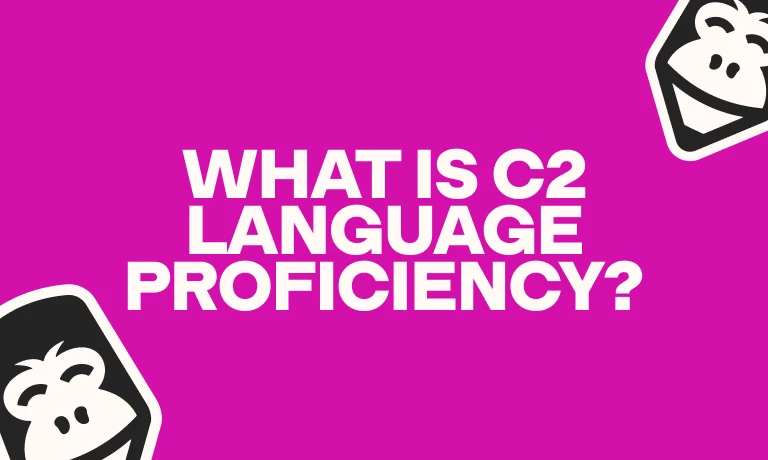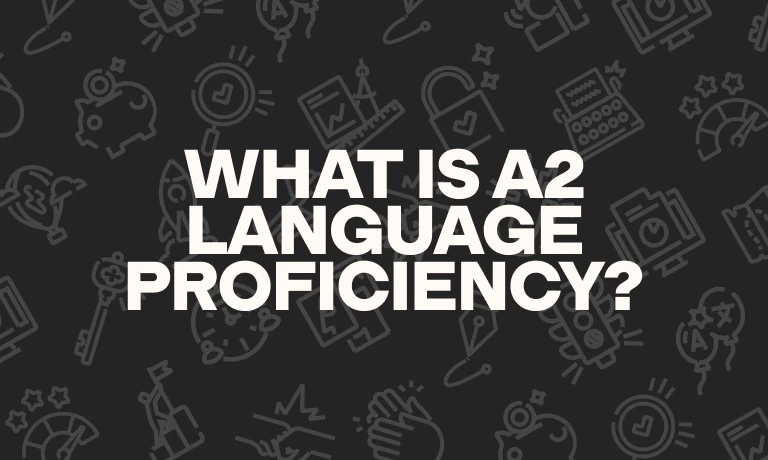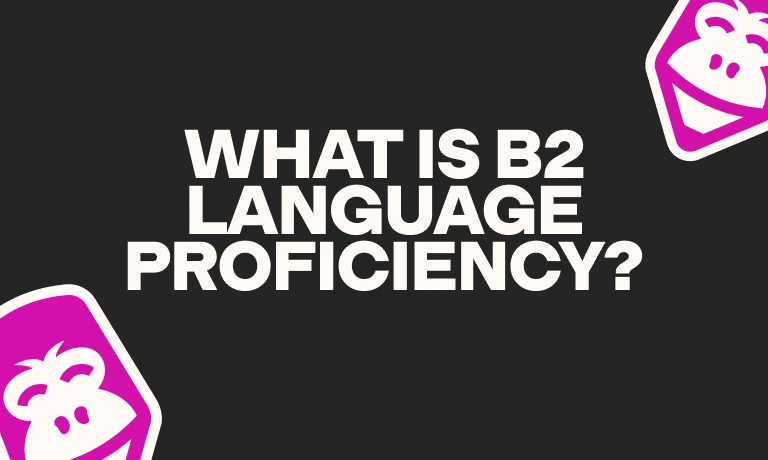How to support ENFP personality types in the workplace
ENFP personality types, also known as Campaigners, are recognized for their exceptional creativity and enthusiastic approach to everything they do. They excel in inspiring others and bringing innovative ideas to life.
However, their need for variety can sometimes lead to a lack of focus on detailed tasks, which can hamper productivity and efficiency.
So, how can you address Campaigners’ challenges while getting the most out of their strengths? We’re here to help. This article explores the ENFP personality type and discusses how to effectively support the Campaigners in your organization.
Overview of ENFPs in the workplace
Campaigners possess these core traits:
Extroverted (E): Recharge in quick-paced environments and prefer social interactions that allow them to express their ideas freely.
Intuitive (N): Look at the big picture and make sense of the world based on patterns, trends, and abstract concepts as opposed to concrete facts.
Feeling (F): Make decisions based on empathy and consideration for others’ feelings, valuing harmony and emotional connection in their interactions.
Perceiving (P): Enjoy flexibility in their jobs and life and dislike sticking to plans.
Strengths and contributions to the workplace
Here are some of the biggest strengths Campaigners bring to your organization:
Innovative problem-solving: ENFPs excel in brainstorming and bringing fresh, creative ideas, making them assets in roles that require innovative thinking, such as product development or creative strategy.
Excellent communication skills: Their natural ability to articulate ideas and inspire others makes them great in roles like public relations or team leadership, where clear and persuasive communication is crucial.
Adaptable and flexible: Campaigners quickly adapt to new situations and challenges, making them invaluable in fast-paced or evolving work environments.
Empathy and understanding: ENFPs are adept at understanding and relating to others, making them excellent team players and leaders, especially in roles requiring high emotional intelligence.
Energetic and motivating: They often act as the team's cheerleader, boosting morale and encouraging others to think positively and ambitiously.
Strong networking abilities: ENFPs’ sociable nature and ability to connect with diverse groups of people make them natural networkers. This makes them especially beneficial in positions involving community engagement or client relations.
Common challenges and pain points
However, Campaigners also face these unique challenges:
Difficulty with routine tasks: ENFPs may struggle with monotonous or highly structured tasks, leading to procrastination or a lack of focus.
Overcommitting themselves: Their enthusiasm can lead them to take on more projects than they can handle, causing stress and even burnout.
Seeking constant approval: ENFPs often seek frequent validation from others, and without it, they can become discouraged.
Struggle with criticism: Sensitivity to criticism may lead to taking feedback personally, affecting their morale and productivity.
Navigating ENFP communication styles and team dynamics
Campaigners' open and enthusiastic communication style can significantly boost team morale and creativity. On the other hand, their aversion to conflict and desire for approval might lead to challenges in dealing with critical feedback or addressing issues directly.
Here’s how to navigate communicating with ENFPs and integrating them into your team:
Effective communication strategies
To communicate effectively with ENFPs, try the following:
Encourage open expression. Create an environment where they can share their thoughts without fear of retaliation or judgment. For example, start meetings with a 10-minute brainstorming session, allowing ENFPs to express their ideas freely.
Offer constructive feedback. Frame feedback in a positive, growth-focused manner to help them understand areas of improvement without feeling demoralized. The "sandwich" method can be helpful for this: Start with something positive, then provide areas for improvement, and end on another positive note.
Balance affirmation with reality. While it’s important to appreciate ENFPs’ enthusiasm, you should also help them stay grounded in the practical aspects of their tasks. Acknowledge their ideas first, then ask probing questions to help Campaigners see whether some ideas are unrealistic. For example, you might ask, “What resources would the team need to bring this idea to life?"
Be expressive and empathetic. ENFPs respond well to warm and empathetic communication. Use language that shows you value their perspective, such as "I really appreciate your unique view on this."
Allow time for exploration. ENFPs often think best when they can explore ideas out loud. Give them opportunities to verbally process information and bounce ideas off others. Schedule regular one-on-one sessions where they can talk through their ideas without time pressure.
Foster an inclusive environment: Encourage an atmosphere where ENFPs feel comfortable sharing their creative ideas. Their extroverted nature often drives them to share openly, but they also value inclusivity and ensuring all voices are heard. So, during meetings, for example, actively seek their input – especially on issues requiring creative solutions.
Best practices for integrating ENFP types into teams
To maximize Campaigners’ contributions, you should:
Value their creativity. While it’s essential to provide structure, allow room for the creativity and adaptability that ENFPs bring. Show them how their innovative ideas fit into the bigger picture and contribute to the team’s goals.
Encourage practical action. As you acknowledge their need for creative exploration, guide ENFPs in translating their ideas into smaller, manageable tasks. For example, if they propose a new marketing campaign, help them outline the stages of campaign development – from conceptualization to execution – and assign specific tasks and deadlines for each stage.
Be smart with responsibilities in collaborative work. To get the most out of your ENFP employees, pair them with team members who complement their strengths and can help ground their ideas. In group projects, assign roles that play to each team member's strengths – like having ENFPs lead the creative brainstorming and their colleagues handle task allocation and timeline management.
Support their need for flexibility: Allow them to have some control over their workflow and be open to their suggestions for new, innovative approaches. For example, give them the freedom to complete tasks in whatever order they prefer as long as they meet deadlines.
Tips for preventing and resolving conflicts
Follow the tips below to effectively manage conflicts with Campaigners.
Address issues with sensitivity: ENFPs appreciate a gentle approach to conflict resolution. Address conflicts by acknowledging their feelings and perspectives, then steer the conversation toward constructive solutions.
Avoid emotional overload: Due to their analytical nature, ENFPs might struggle in highly emotional situations, which can escalate conflicts. To manage such situations effectively, keep discussions with ENFP employees fact-based, focusing on the logic of the conflict rather than the emotions involved.
Emphasize the positive: ENFPs can be sensitive to criticism, so it’s essential to frame feedback in a positive light. Focus on how resolving the conflict can lead to better outcomes for everyone involved.
The best insights on HR and recruitment, delivered to your inbox.
Biweekly updates. No spam. Unsubscribe any time.
How to motivate ENFP employees and keep them engaged
Understanding what drives ENFPs is key to unlocking their potential and ensuring their commitment to your organization.
What motivates ENFP personality types at work
ENFPs are motivated by meaningful, creative work that aligns with their values. They flourish in autonomous, varied environments that allow for innovation and self-expression.
Campaigners also highly value personal growth, meaningful connections, collaborative opportunities, recognition, and freedom to explore their passions.
Strategies for engaging ENFP types
Follow these strategies to keep your ENFP employees motivated and engaged:
Encourage collaborative creativity: ENFPs excel in environments where they can brainstorm and collaborate with others. Encourage team projects that allow them to express their creativity and work alongside their peers.
Provide opportunities for interpersonal interaction: Assign tasks that involve communication, teamwork, and relationship-building. ENFPs thrive in roles where they can interact with others and build connections.
Offer constructive, empathetic feedback: Regularly acknowledging Campaigners’ contributions feeds their desire for approval. So, try to recognize their hard work whenever you can. When offering guidance on improvement, do so empathetically, ensuring you validate their feelings and efforts.
Engage them in dynamic responsibilities: Involve ENFPs in roles and tasks that require adaptability and offer varied experiences. Remember, they love dynamic work that aligns with their energetic and versatile nature.
Tips for supporting ENFPs’ well-being
Here’s how you can nourish your Campaigner employees’ well-being at work:
Encourage work-life balance. Remind them to take breaks and disconnect from work to prevent burnout. Additionally, implement policies that limit after-hours work communication – such as “no email weekends” – and encourage using vacation days. This will benefit not only your Campaigner employees but the rest of your team, too.
Address their tendency to overcommit. Help ENFPs set realistic goals and prioritize tasks. During one-on-one meetings, discuss their current workload and assist them in identifying which tasks are essential and which can be delegated or postponed.
Promote social engagement. Create opportunities for social interactions and team-building activities, such as regular team lunches or creative workshops where they can interact informally and build relationships. ENFPs enjoy being part of a community and benefit from social support in the workplace.
Support their need for change. Encourage ENFPs to diversify their work experiences to prevent stagnation. Offer rotational assignments or project-based roles that allow them to explore different areas of the business.
Guidance on personal development and career growth for ENFPs
With their imaginative approach and strong interpersonal skills, Campaigners often seek creative freedom and opportunities for personal growth.
Here’s what you can offer them to support their development at your organization:
Ongoing education: Support ENFPs’ passion for lifelong learning by providing access to training in areas that spark their interest. These might include creative writing workshops, presentations on marketing strategies, and leadership courses.
Mentorships: Pair them with mentors who resonate with their empathetic and enthusiastic nature and can help guide them in their career journey.
Creative expression platforms: Provide avenues for your ENFP employees to express their ideas, such as brainstorming sessions or innovation workshops. This not only empowers them but also brings fresh perspectives to your business.
Customized career trajectories: Speak with Campaigners to learn about their passions and discover how they see themselves progressing at your company. Then, work together to identify roles and opportunities for the future – giving them a clear and engaging path for growth.
Supporting ENFP talent with TestGorilla
Campaigners excel when they’re engaged in creative problem-solving, can collaborate with others, and are involved in meaningful work. However, they can struggle with criticism and tend to take on too much responsibility at once. Supporting ENFPs at work means understanding these traits and using approaches that help them fit into the team, stay motivated, and grow in their careers.
You can use TestGorilla’s 16 Personalities test to identify ENFP workers at your organization, then explore our blog for additional information about this unique personality type.
TestGorilla is great for more than just personality assessments, though. Our library has hundreds of tests to evaluate everything from job-specific skills to cognitive abilities and everything in between.
Get started with TestGorilla by signing up for a free demo or creating a free account today.
You've scrolled this far
Why not try TestGorilla for free, and see what happens when you put skills first.














